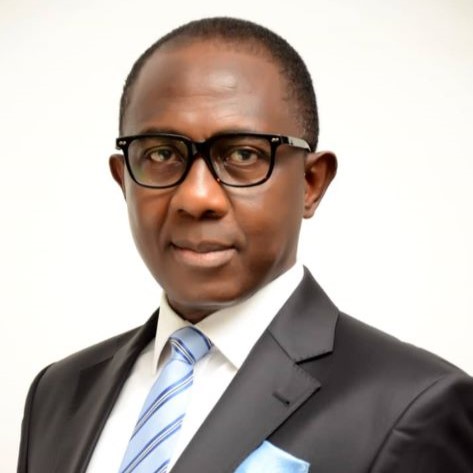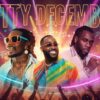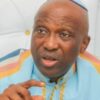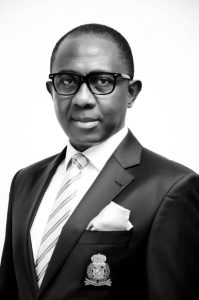Reflections On Election Media Coverage

Democracy thrives when the media is effective, this meaning the provision of accurate, useful information in a way that readers or users can make informed decisions. You have to agree with those who say the quality of the media often determines the quality of democracy. Nigerian newspapers played crucial roles in the struggle for independence, and the likes of Iwe Irohin, the first newspaper in the country and the West African Pilot were prominent as rallying points for the activists.
In spite of the criticisms that the tradition initiated by the Iwe Irohin and West African Pilots is dying, you still see some excellent journalistic work in the country. True, the media is struggling with many issues, some of which I have dealt with in another blog post but the latest ‘State of Global Press Freedom’ report from Freedom House seems to me to be apt in describing what we’re seeing in Nigeria. But more on this later.
My primary interest as I watched the preparations for the 2019 presidential elections was on the media coverage and for obvious reasons. The polls and political communication around them have been transformed since 2011 when Goodluck Jonathan opened a Facebook page for his campaign. That change and the broad issue of new media and its impact on the Nigerian political process is my focus in an ongoing doctorate study. So, it was interesting to observe the media and its coverage of the elections and what follows is my takeaway.
In a bitterly-contested presidential election like the one that just concluded, I thought the media should have focused more on the issues to help their readers make a choice. Where they attempted to do this, it was poorly done as most media organisations just followed the significant contenders as they moved around the country campaigning. I get the impression that media houses thought images of crowds from those campaign grounds would help their users make up their minds in the way they competed with themselves to publish them.
One report by the Punch looking at issues likely to shape the elections was a nice attempt at informing and educating its readers, but it relied only on the opinion of the writer when a simple survey would have provided more insight and enhanced the quality of that piece of content. Not that surveys in themselves will add quality if you don’t know what you’re looking for though. Another report by the Vanguard, for instance, quotes a survey conducted by a third party but either does a poor job of interpreting the result or picked a badly-executed survey for that story. Or it could be both, for I struggled to make meaning of that story and if this is my experience, I doubt if it would have been any use to most readers.
By contrast, a story by Deutsche Welle, Germany’s public international broadcaster, provided what I consider a simple-enough guide as to the issues that would shape the elections in a report that showed that poverty and security were ahead of corruption as issues of most concern to voters. Many reports such as the one from the US-based Council on Foreign Relations, and Gallup seem to back up the DW report, and the beauty of it is they were freely available and would have enhanced the quality of any story by providing context. Yet, you would almost get the impression that corruption was the number one issue of concern for the electorate.
Providing context, it seems, is not the strongest point of Nigerian media and even for those who do, it requires excellent news judgment, so it doesn’t backfire. Once again, I found it interesting that another report by a foreign media outlet exposed this inadequacy and in a strange way as well.
When the UK’s Guardian newspaper reported few days to the presidential poll that analysts were saying that Nigeria’s voter data was statistically impossible, it showed the possibilities for deep insight in documents and data available in the public arena. The story, which the Guardian later edited to expunge the paragraphs relating to the data, suggested that voter registration across many states had grown by the same margin and that this was statistically impossible.
It’s no use dwelling on the removal of the paragraphs relating to the voter data but the point is the paper, and its correspondents sought to provide context in the coverage of the elections. I expect nothing less from Nigerian papers, and I would imagine curious editors to take the Guardian’s action as an invitation to subject the voter data to rigorous scrutiny. But, this may be asking too much of media houses if the recent assessment by Freedom House is any indication.
In assessing the state of the media, Freedom House confirms what we’ve always known, that Nigeria has a ‘vibrant and varied media landscape with outlets that openly criticize government policies.’ I should know, I was a business reporter for the Punch in Abuja in the Abacha years and in spite of the threats from the squad led by Major Hamza Al-Mustapha (Rtd.), many journalists and media houses held their own.
Freedom House also notes the recent moves to regulate communication on new media through questionable legislation. The attempt to use the Cybercrimes Act, to harass bloggers who are particularly critical of public officials was cited as evidence.
However, the interesting part of the report, for me, was the conclusion that many journalists are self-censoring themselves. Again, this is something we already know, but perhaps the report misses it a bit with the possible explanations. Here’s what they reported: ‘Journalists face attacks while carrying out their work, sometimes by security officials. Attacks against journalists often go unprosecuted, and an environment of impunity for attackers, combined with the threat of legal prosecution and harassment in connection with critical coverage, encourages self-censorship.’
It’s true, threats and harassments may force some to self-censor, but as an insider of sorts, with newsroom and corporate communication experience, I know many others do so for monetary gains. The media industry is in dire straits, and this has left many journalists either poorly paid or going for several months without pay at all. The result, studies have confirmed, is that many, including very senior journalists, are succumbing to cash-for-stories to survive. So often, what you get are distortions of realities as journalists and media housed nuance their reports.
The environment is further complicated by new media, which has made a journalist of almost anyone with a smartphone. From questionable news sites to social media, you could detect a pattern – people, including senior journalists, openly took sides with political parties. Again, as in mainstream media reports, reports and opinion lacked any context, rigorous engagement with the issues and outright mischief in most cases. Let me hasten to say there is no law stopping journalists from taking political positions, but the only risk is if it affects and colours their editorial judgments.
One of the criticisms of computer-mediated communication is that it is an echo chamber, where people locate and dwell only beliefs or opinions that they’re comfortable with. However, studies are now showing that ‘motivated reasoning’ is responsible for the irrational belief and commitment to questionable beliefs hitherto blamed on echo chamber effect. Put simply, what this says is that our reasoning is distorted by a subconscious process. So, to claim to be Atikulated or claim to be Buharist and think that you are still reasonable is to dwell in self-deceit. If what we’re seeing from the coverage of the elections is anything to go by, we’ll continue to have distortions and unreasonable arguments in news reporting and comments for a long time to come.













Follow Me